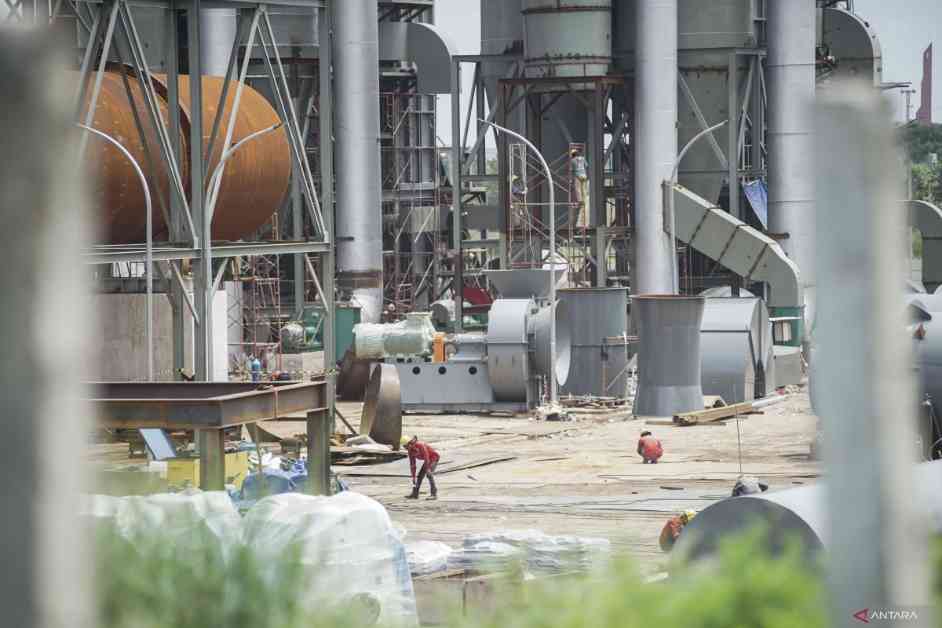Building Prosperity Through Reducing Unemployment: A Comprehensive Guide
Jakarta – Unemployment remains a pressing issue in Indonesia, with the government implementing various initiatives to address the issue since 2024. Statistics Indonesia (BPS) reported that the number of unemployed individuals in the working-age group was 7.47 million in August 2024, representing a decrease of 390 thousand compared to the previous year. As a result, the open unemployment rate decreased from 5.32 percent in August 2023 to 4.91 percent in August 2024.
Naker Fest 2024: Empowering the Youth
In February 2024, the Manpower Ministry, under the leadership of former Minister Ida Fauziyah, organized a job fair called Naker Fest 2024. The event aimed to empower the younger generation, optimize employment development, absorb labor, and reduce joblessness. It also aimed to enhance collaboration between the government, businesses, and the community to address challenges in the employment sector.
Continued Efforts under New Leadership
Even after the transition to President Prabowo Subianto’s government, the Manpower Ministry, now led by Minister Yassierli, continued the Naker Fest initiative. Another significant effort in 2024 was the launch of the Labor Market Information System (SIPK). This system aims to establish a sophisticated and comprehensive information system that describes the workforce’s structure, characteristics, supply, and needs. The implementation of SIPK is expected to enhance the quality of human resources, enabling them to acquire the necessary skills and competencies to meet the demands of the job market.
Child Labor-Free Indonesia Road Map
In preparation for National Children’s Day on July 23, 2024, the Ministry of Manpower introduced the Phase II Child Labor-Free Indonesia Road Map. This roadmap, developed since 2023, aims to gradually reduce the number of child laborers in Indonesia, particularly those involved in the worst forms of child labor (WFCL). It serves as a guide for all stakeholders, including local governments, businesses, trade unions, civil society organizations, and child advocates, to accelerate the elimination of child labor and WFCL.
Ensuring Workers’ Safety
The government is committed to ensuring workers’ safety across various sectors, from industries to micro and small businesses. The National Occupational Safety and Health (OSH) Program, a collaborative effort between the Ministry of Manpower and the International Labor Organization (ILO) for Indonesia and Timor Leste, is a crucial step in this direction. This program is expected to enhance the understanding and implementation of OSH practices nationwide.
Expanding Job Opportunities
To combat unemployment, the Ministry of Manpower has been establishing community job training centers (BLKs) tailored to meet the community’s diverse needs and enhance their competitiveness. By fostering synergy between vocational training and job opportunity expansion, these BLKs serve as entrepreneurial incubators, supporting job absorption and reducing unemployment. The government has built 4,282 community BLKs nationwide, from Aceh to Papua, to support entrepreneurship and job creation efforts.
Wage Increase and Support for Affected Workers
In September 2024, the government raised the 2025 Provincial Minimum Wage by 6.5 percent. Minister of Manpower Yassierli assured that the ministry is prepared to assist companies facing challenges due to the wage hike. Additionally, the ministry offers support to workers affected by job terminations, providing unemployment benefits, training benefits, and facilitating access to job-related information to enhance their reemployment opportunities.
In conclusion, the Indonesian government’s multifaceted approach to reducing unemployment and improving the quality of employment is a significant step towards building prosperity and enhancing the well-being of its citizens. By prioritizing initiatives that empower the youth, ensure workers’ safety, combat child labor, and expand job opportunities, Indonesia is paving the way for a more inclusive and sustainable workforce development strategy.
This article was translated by Sinta Ambarwati and Raka Adji, and edited by Rahmad Nasution. Copyright © ANTARA 2025.






















